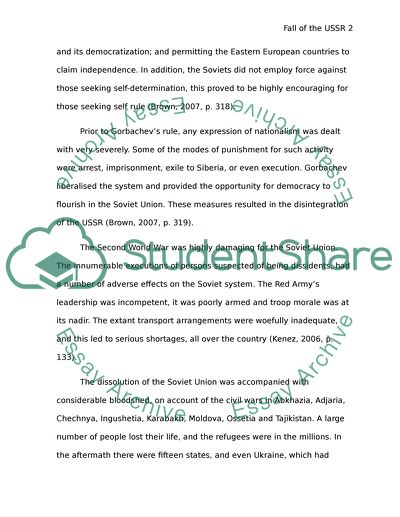Cite this document
(Reasons for the Collapse of the Soviet Union Case Study, n.d.)
Reasons for the Collapse of the Soviet Union Case Study. Retrieved from https://studentshare.org/history/1559882-what-were-the-causes-of-the-collapse-of-the-soviet-union
Reasons for the Collapse of the Soviet Union Case Study. Retrieved from https://studentshare.org/history/1559882-what-were-the-causes-of-the-collapse-of-the-soviet-union
(Reasons for the Collapse of the Soviet Union Case Study)
Reasons for the Collapse of the Soviet Union Case Study. https://studentshare.org/history/1559882-what-were-the-causes-of-the-collapse-of-the-soviet-union.
Reasons for the Collapse of the Soviet Union Case Study. https://studentshare.org/history/1559882-what-were-the-causes-of-the-collapse-of-the-soviet-union.
“Reasons for the Collapse of the Soviet Union Case Study”. https://studentshare.org/history/1559882-what-were-the-causes-of-the-collapse-of-the-soviet-union.


